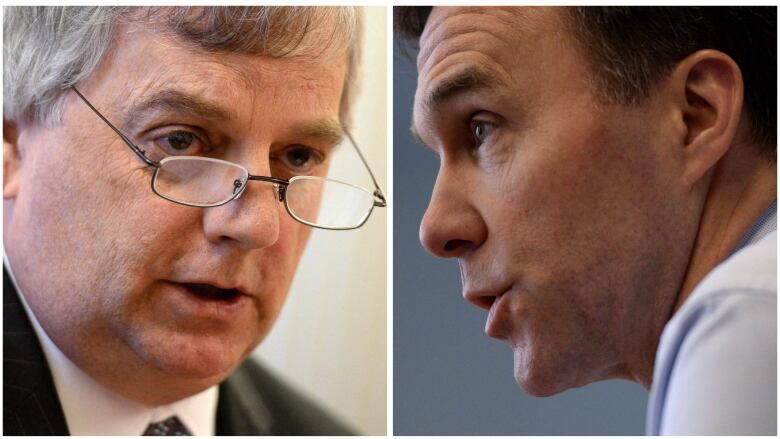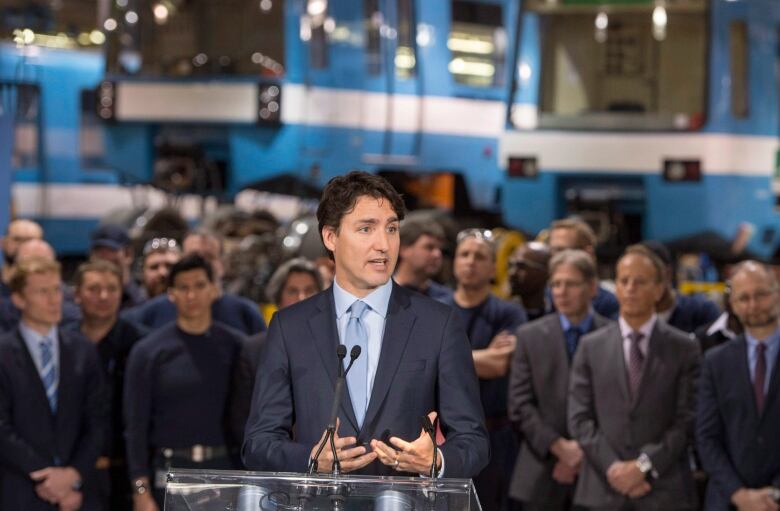Liberal budget makes it tougher to scrutinize fate of public purse: PBO
Budget watchdog takes issue with spending projections, decision to lower economic outlook by $6B

The federal budget watchdog says the Liberals' inaugural fiscal plan was less transparent than those of past governments, making it tougher for people to assess the state of the public books.
A new report Wednesday by the parliamentary budget office said last month's federal budget failed to separate purely discretionary decisions by the Liberals like new policy measures and changes in planning assumptions from shifts in economic conditions, as past governments did.
- Analysis: Liberals talk about curbing tax giveaways. Good luck with that
- Federal budget 2016: Highlights of Bill Morneau's first budget
"The government has made changes to the presentation of its fiscal plan that have made it more difficult for parliamentarians to scrutinize public finances," said the analysis by budget officer Jean-Denis Frechette.
The report came weeks after the Liberals tabled a budget projecting five years of deficits totalling more than $110 billion. The analysis said the government could have provided more clarity for the public in several areas.
Among Frechette's concerns is the Liberal decision to introduce a risk adjustment that lowered annual forecasts for nominal gross domestic product by $40 billion a move that translated into knocking $6 billion a year off the projected budgetary balance.

He called the size of the adjustment "excessive" and said it eroded the independence of government's traditional practice of basing its projections on an average of private-sector economic forecasts.
In fact, the report said, in past years actual nominal GDP outcomes have typically exceeded their forecasts.
That $6-billion annual cushion has lowered fiscal forecasts to the point they could ultimately help the government reap political rewards by beating expectations.
Just adjusting for 'errors,' Trudeau says
Asked Wednesday about this criticism, Prime Minister Justin Trudeau argued that in recent years expert predictions missed the mark for nominal GDP by about $40 billion.
"It's been three or four years that every time they make predictions for the economy, they later say, 'Oh, we were wrong, it's going worse than we thought'," Trudeau said in French at a news conference in Montreal.
"So, instead of continuing to make these same errors and to allow these same errors, we say let's adjust it right away...
"It's by the desire of transparency and openness and veracity that we took this approach and it's an approach, by the way, that was applauded by economists and by the experts."
Trudeau has repeatedly insisted that running a string of annual budget shortfalls will enable the government to invest in the economy to boost long-term growth and create jobs.
But the budget office's analysis predicts a more-modest impact than the Liberals expect.
The Liberal budget projected near-term government investments especially in infrastructure and tax relief for middle- and low-income households to generate 0.5 per cent growth this year and one per cent in 2017-18. The plan also predicted the measures would create or maintain 143,000 jobs over the next two years.
The report said the measures are poised to create or maintain 86,000 jobs over the next two years, while boosting growth by 0.5 per cent this year and 0.8 per cent in 2017-18.
Frechette's report also noted that the Liberal budget shortened the traditional time horizon for detailed government cost estimates to two years from five.
"While uncertainty surrounds cost estimates, particularly five years into the future, a medium-term horizon is required to more fully assess the evolution of program costs," the report said.
(PDF KB)
(Text KB)CBC is not responsible for 3rd party content












_(720p).jpg)


 OFFICIAL HD MUSIC VIDEO.jpg)
.jpg)



























































































